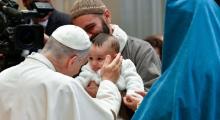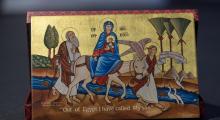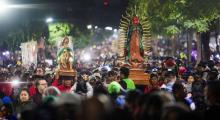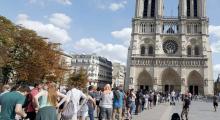Issued by the Catholic Center for Studies and Media - Jordan. Editor-in-chief Fr. Rif'at Bader - موقع أبونا abouna.org
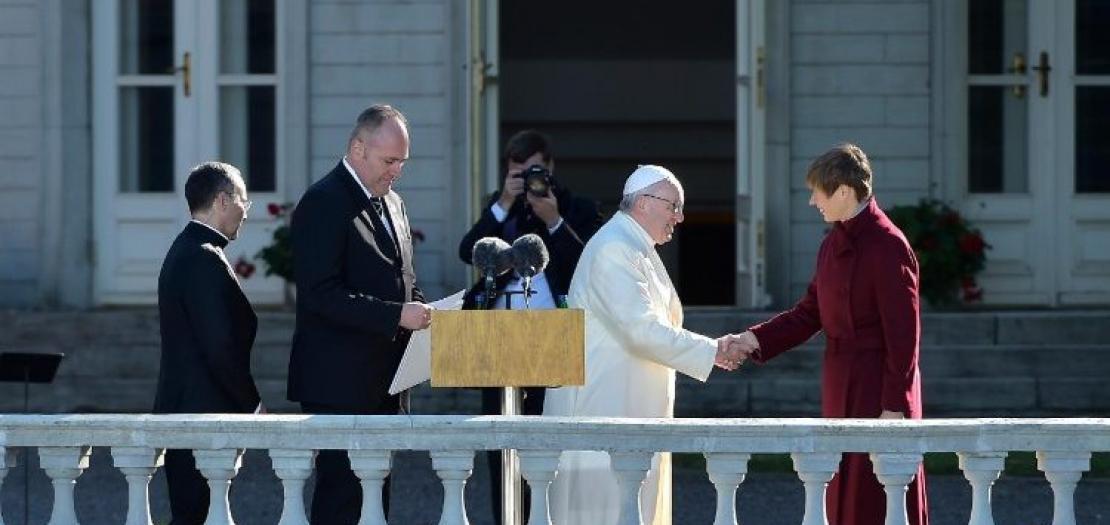
Estonia, Land of Mary
In his meeting with state and civil authorities and members of the Diplomatic Corps on Tuesday, Pope Francis recalled how that for centuries Estonia was known as “the Land of Mary”. He remarked, that it is a name that is not simply part of the country’s history, but also part of its’ culture. Thinking of Mary and Estonia, the Pope continued, “reminds me of two words: memory and fruitfulness.”
Faith of your predecessors
“To be a land of memory, explained Pope Francis, is to keep remembering that what you have attained today is due to the efforts, the hard work, the spirit and the faith of your predecessors.”
The Pontiff noted the suffering and tribulation that the people had to endure at different times in history. “Struggles for a freedom and independence that was constantly disputed or threatened”, he said. Nonetheless, he added, “in the last twenty-five years or so, since you once again took your proper place in the family of nations, Estonian society has taken “giant steps” forward” in the fields of innovation, press freedom, democracy and political freedom.
Land of fruitfulness
Focusing on Estonia as a land of fruitfulness, Pope Francis commented that “one of the evident effects of technocratic societies is a loss of meaning in life and the joy of living.” People, he said are deprived of the “capacity to dream, to risk and to create.” Therefore, he underlined, “one of the most important obligations incumbent on all of us who have social, political, educational and religious responsibilities has to do precisely with how we can keep building bonds.” Therefore, the Holy Father stressed, “a land will be fruitful, and its people bear fruit and give birth to the future, only to the extent that it can foster a sense of belonging among its members, create bonds of integration between generations and different communities; and avoid all that make us insensitive to others and lead to further alienation.” In this effort, concluded the Pope, “I wish to assure you that you can count always on the support and help of the Catholic Church, a small community in your midst, yet one most desirous of contributing to the fruitfulness of this land.”
Pope Francis to young people: ‘Love's not dead’
During his Apostolic Visit to Estonia , Pope Francis met with young people in an ecumenical gathering in the Lutheran Charles Church. He drew inspiration for his remarks from a painting in the apse of the Church bearing the verse from Matthew, “Come to me, all you who labour and are heavy laden, and I will give you rest” (Mt 11:28).
Young people can identify with Jesus
Pope Francis began his remarks by thanking three of the young people, Lisbel, Tauri and Mirko, who gave their testimonies. He then told the young people gathered that they could “identify with some of the things going on in the section of the Gospel” depicted in the painting. At this point, Jesus feels misunderstood and Matthew notes that Jesus is saddened by this (cf 11:20-24).
Frequently you too, as young people, can feel that the adults around you do not appreciate your hopes and desires; sometimes, when they see you very happy, they get suspicious; and if they see you anxious about something, they downplay it, the Pope said.
Companions along the way
The Pope then referred to the pre-Synodal process in which many young people “expressed the desire to have a companion along the way”. He acknowledged that the institutional structures of the Christian churches at times bring attitudes that make it easier for [adults] to talk, give advice, speak from our own experience, rather than listen, be challenged and learn from what you are experiencing.




